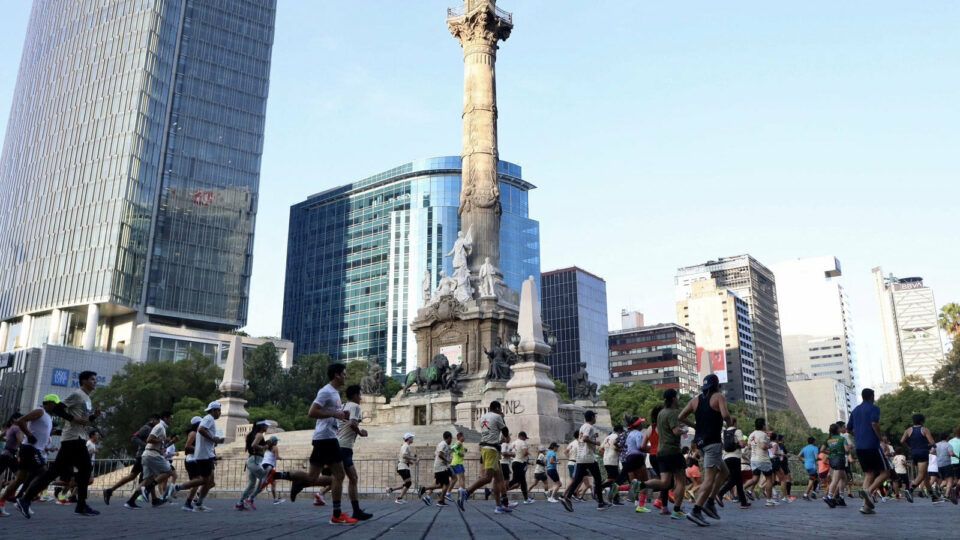In the realm of marathons, where endurance and willpower reign supreme, the last place one might expect a scandal is amidst the rhythmic pounding of thousands of runners’ feet.
Yet, the 40th anniversary of the Mexico City Marathon saw a twist that would leave many gasping—not from exhaustion, but sheer disbelief.
Table of Contents
A Mexico City Marathon of Shortcuts
This year, of the 30,000 runners who took to the streets of Mexico City, an astonishing 11,000 found themselves disqualified.
The reason? Evidence suggested they hadn’t completed the full course, with some allegedly taking drastic shortcuts like hopping into cars or even boarding public transport.
The lure of cutting a few corners, or in this case, several miles, proved too tempting for thousands.
Electronic Trackers: The Marathon’s Unbiased Referee
The modern marathon isn’t just about athletic shoes and hydration packs. It’s also about technology. Electronic trackers worn by runners relay a multitude of information, from pace to the exact route taken.
This year, these silent witnesses unravelled the web of deception. An investigation spurred by anonymous complaints dove deep into this digital data, revealing the shocking number of participants who bypassed crucial checkpoints.
A History of Taking the Easy Route
For the Mexico Marathon, it seems history has a way of repeating itself. In the 2017 race, 6,000 runners found themselves disqualified.
The next year, over 3,000 faced the same fate. It raises the question: what drives thousands to trade the pride of finishing a marathon for the fleeting glory of a cheated medal?
The Gold Label Event with a Tarnished Image
Holding the esteemed World Athletics Gold Label Status, the Mexico Marathon stands as a beacon of excellence in the Latin American running community. This recurring scandal poses a bittersweet juxtaposition for an event synonymous with “quality and professionalism.”
In response to the situation, a World Athletics spokesperson stated, “It is always disappointing to hear that people choose to cheat in our sport.” However, they also praised the marathon organisers for their vigilance and quick action.
Victory Beyond the Scandal
Despite the shadow cast by these shortcuts, let’s not forget the genuine triumphs. Bolivia’s Hector Garibay stormed to victory in the men’s race, completing it in an impressive 2:08:23. In the women’s category, Kenya’s Celestine Chepchirchir took the crown with a stellar 2:27:17.
Every finisher, those who genuinely conquered the 26.22-mile behemoth, received a medal embossed with Mexico City’s iconic Latin American Tower, a tangible symbol of their grit and determination.
Embracing Authenticity: The True Spirit of the Marathon
The Mexico Marathon serves as a reminder that in the world of sports, genuine effort and authenticity always outshine shortcuts. It’s not about the destination (or the finisher medal) but the journey.
Here’s hoping that future races see runners embracing the true spirit of the marathon, one stride at a time.
What led to the massive disqualification of runners at the Mexico City Marathon?
Electronic trackers detected that over 11,000 participants hadn’t completed the full course.
How do marathon organisers determine if a runner has cheated during the race?
Organisers often use electronic trackers to monitor if runners pass through designated checkpoints.
Was this the first time the Mexico City Marathon faced an issue with cheating runners?
No, previous races, such as in 2017 and 2018, also saw thousands of runners disqualified.
How do runners allegedly cheat during marathons?
Some accused runners used vehicles or public transport during the race to cover portions of the course.
What status does the Mexico Marathon hold in the world of road running events?
The Mexico Marathon holds the World Athletics Gold Label Status, the second-highest status for road running events.
Featured Photo Credit: Medio Maratón de la Ciudad de México BBVA





